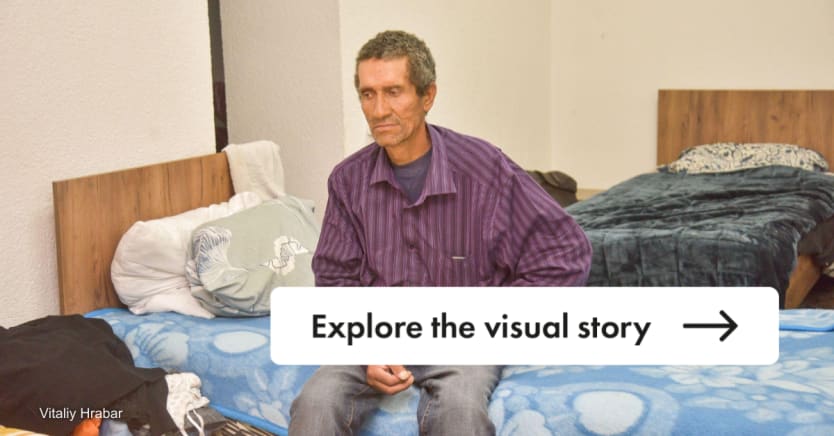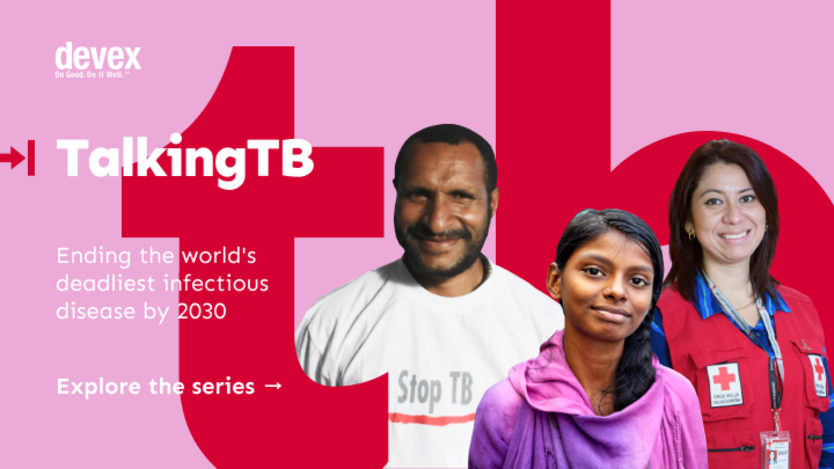
Mikola Zdruk, 53, leans back wearily on the bench outside the shelter for displaced people in a suburb of the city of Lviv, western Ukraine. A bed in a shared room in the basement of a block of flats has been his home for the past four weeks. He fled from the Zaporizhzhia region, eastern Ukraine after Russian forces invaded the country on Feb. 24.
TB, refugees, and eastern Europe
Millions of Ukrainian refugees have been forced to flee to neighboring countries, including to other eastern European countries with existing high rates of TB.
This has caused the World Health Organization to issue guidance calling for humanitarian agencies and host countries responding to the crisis to try to ensure the continuation of TB treatment and services, out of concern that the disease will spread.
To hear more about the impact of Russia’s invasion on tackling TB in the wider region as well as the wider context, Devex interviewed Moldovan parliamentarian Dan Percuin about why his country needs to put tackling TB at the top of its national agenda. Read the interview here.
“I saw explosions and missiles,” he says weakly, between deep, gravelly coughs. “When I arrived in Lviv on an evacuation train, I was sent for an X-ray. The doctors said I had tuberculosis.”
After receiving treatment in a hospital, Zdruk was referred to 100%Life, a Ukrainian NGO providing treatment and support in the community to people living with tuberculosis, HIV/AIDS, and hepatitis. It set up the shelter where Zdruk now sleeps, which provides his meals and clothes and will support his TB treatment until it ends in November.
“After that, I want to go home,” Zdruk says.
Ukraine has the fourth highest TB incidence rate among the 53 countries in the World Health Organization European region, and one of the highest rates of multidrug-resistant TB in the world. This happened as a result of the breakup of the Soviet Union in the early 1990s, which led to fractured health systems and disruption in TB treatments that led to an increase in numbers.
In the 15 years leading up to 2020 rates fell significantly. But all that headway is about to be lost.
To find out more about the impact of conflict on TB in Ukraine, Gabriella Jóźwiak traveled to Lviv, western Ukraine and spoke to displaced people being treated for the disease and the NGO staffers attempting to continue to provide vital health care and support amid immense challenges.
Read the on-the-ground report and explore the visual story.
Visit the Talking TB series for more coverage on how we can eliminate tuberculosis by 2030. The time for a paradigm shift and a renewed focus on funding, research, and global solutions is now. Join the conversation by using the hashtag #TalkingTB.

